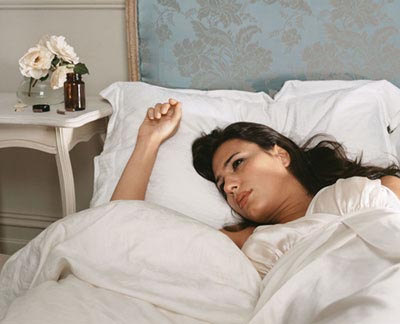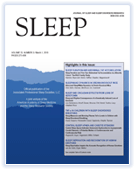
近期《睡眠》杂志上上发表了来自澳大利亚的研究人员对一种新型、25小时非药理学疗法——强化睡眠再训练疗法(intensive sleep retraining,ISR)进行的研究,包括单独ISR治疗和ISR与SCT[刺激控制疗法(Stimulus control therapy,SCT)是治疗慢性失眠症的主要行为疗法]联合治疗。
这种针对慢性失眠的25小时强化调节治疗,可迅速改善睡眠、日间机能和心理变量。在传统干预基础上加用ISR,似乎可获得好的治疗反应。
79例成年患者(平均年龄41岁)患有入睡困难型失眠,无其他睡眠障碍或重大精神疾病。他们被随机纳入睡眠卫生咨询组(对照组)、SCT组(连续5周每周会见心理医生,重点是重新建立床或卧室与睡眠的联系,设定一个连贯的睡眠时间表)、先行ISR再行SCT加睡眠卫生咨询组,或ISR结合睡眠卫生咨询组。ISR在睡眠实验室进行,从晚上10:30开始,前1天晚上限睡5小时。在接下来的25个小时中,参与者接受50个半小时的睡眠试验。在每一次试验中,在20分钟内入睡的参与者,经睡眠记录仪确认3分钟睡眠后被叫醒,询问他们是否认为自己已经睡着了,并告知他们确实如此。
与睡眠卫生疗法相比,3种主动疗法全都明显改善了患者的入睡时间和总睡眠时间。ISR改善睡眠起效最快,在第1周就显现。经过6周治疗后,在SCT+ISR组中,61%的患者治疗有效(入睡时间<30分钟,或比基线时间缩短50%以上),ISR组的有效率为47%,SCT组为38%。在为期6个月的随访中,所有组别的疗效得到了保持。

 A randomized controlled trial of intensive sleep retraining (ISR): a brief conditioning treatment for chronic insomnia.
A randomized controlled trial of intensive sleep retraining (ISR): a brief conditioning treatment for chronic insomnia.
Harris J, Lack L, Kemp K, Wright H, Bootzin R.
STUDY OBJECTIVE: To investigate the effectiveness of intensive sleep retraining in comparison and combination with traditional behavioral intervention for chronic primary insomnia.
PARTICIPANTS: Seventy-nine volunteers with chronic sleep-onset insomnia (with or without sleep maintenance difficulties) were randomly assigned either to intensive sleep retraining (ISR), stimulus control therapy (SCT), ISR plus SCT, or the control (sleep hygiene) treatment condition.
INTERVENTION: ISR treatment consisted of 50 sleep onset trials over a 25-h sleep deprivation period.
MEASUREMENTS AND RESULTS: Treatment response was assessed with sleep diary, activity monitoring, and questionnaire measures. The active treatment groups (ISR, SCT, ISR+SCT) all resulted in significant improvements in sleep onset latency and sleep efficiency, with moderate to large effect sizes from pre- to post-treatment. Wake time after sleep onset decreased significantly in the SCT and ISR+SCT groups. Total sleep time increased significantly in the ISR and ISR+SCT treatment groups. Participants receiving ISR (ISR, ISR+SCT) experienced rapidly improved SOL and TST during treatment, suggesting an advantage of rapid improvements in sleep in response to ISR. Although there were few statistically significant differences between groups on individual variables, ISR+SCT resulted in consistently larger effect sizes of change than other treatments, including questionnaire measures of sleep quality, sleep self-efficacy, and daytime functioning. The combination treatment group (ISR+SCT) showed trends to outperform other active treatment groups with fewer treatment dropouts, and a greater proportion of treatment responders with 61% reaching "good sleeper" status. Treatment gains achieved at post-treatment in the active treatment groups were largely maintained throughout follow-up periods to 6 months.
CONCLUSION: This 25-hour intensive conditioning treatment for chronic insomnia can produce rapid improvements in sleep, daytime functioning, and psychological variables. Adding ISR to traditional interventions seems to result in a superior treatment response.







